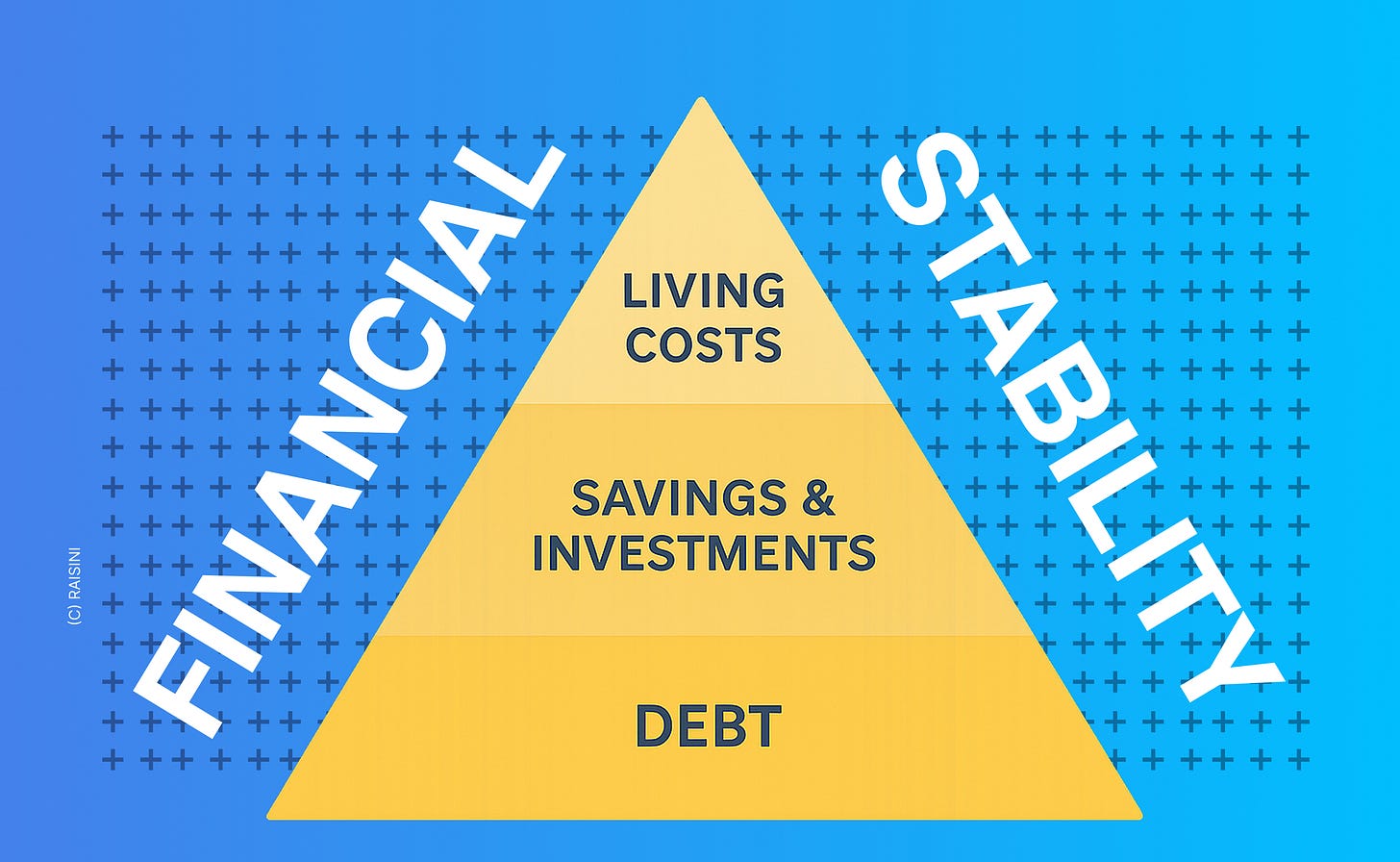The 1/3 One-Third Rule of Financial Stability
A practical framework for achieving long-term security and balanced wealth.
Welcome to this week’s issue of RAISINI.
Every week, i write about building a life on your own terms - through music, entrepreneurship, investing, health and brand-building. This isn’t theory. It’s what I’ve lived. Let’s keep going.
If you want access to private chats, live events, workshops, and more, consider becoming a paid or founding member.
A Personal Note:
These are real-life money lessons I learned the hard way, and I want to share them with you to become financially educated. This article includes a recent study paper on “The One-Third Rule in Financial Planning with Mathematical Validation”
Why Income Alone Doesn’t Make You Wealthy
When I was 17, I made my first million. That should have been the start of financial freedom. Instead, it became the most expensive lesson of my life.
There was a time in my life when I thought money was endless. The entertainment industry fed me first-class flights, luxury hotels, and the illusion that if I kept making more, I’d always be fine. When the meals are paid for, the champagne keeps flowing, and your peers are flexing watches and designer brands, it’s easy to believe you’ve arrived.
At that age, I didn’t understand money. I understood hustle. I knew how to build, sell, and execute. But structure? Discipline? A system for wealth? None of that existed in my world. Money flowed in fast, but it leaked out just as quickly. Travel, lifestyle, bad deals, unnecessary risks, I was living proof that high income doesn’t equal financial stability.
For a while, I convinced myself I was untouchable. When you’re young and making serious money, you think the game will never end. But money has a way of teaching you harsh truths. The truth it taught me is this: without rules, wealth slips through your fingers.
Years later, after rebuilding, failing again, and rebuilding once more, I came to a realization that changed how I look at money forever: it’s not how much you make that matters, it’s how you allocate what you make.
That’s where the One-Third Rule comes in. It’s simple: divide every dollar you earn into three equal parts - one-third for living, one-third for saving and investing, and one-third for paying down debt or building future security.
The beauty of this rule is that it cuts through excuses. It doesn’t matter if you earn $3,000 a month or $30,000 a month, the principle stays the same. Structure beats income. Clarity beats chaos. And discipline beats lifestyle creep every single time.
At first, this sounds almost too simple. But the best systems are. This isn’t a “get rich quick” trick. It’s a framework. It forces you to live within your means, it ensures you’re always saving, and it keeps you from being crushed under the weight of debt. And unlike budgeting spreadsheets or financial jargon, it’s something anyone - no matter their income level - can understand and put into practice.
Think of it this way: the One-Third Rule is like financial oxygen. Without it, you can be making millions and still suffocate under expenses, stress, and poor habits. With it, even a modest income begins to compound into security, freedom, and eventually wealth.
I learned the hard way that money without rules is a curse. The One-Third Rule is the kind of system I wish someone had handed me at 17. If I had applied it then, I wouldn’t have just made a million - I would have kept it, grown it, and multiplied it.
I’ll break down exactly how the One-Third Rule works, why it’s backed by behavioral economics, and how you can start applying it today. Because money isn’t about how much passes through your hands - it’s about how much you keep, protect, and grow.
The Problem with Modern Money Habits
We live in an age where money flows faster than ever, yet people feel poorer than ever. Wages rise, but so do expenses. Debt is everywhere. Credit cards make it easy to buy now and worry later. Social media fuels lifestyle inflation - the endless chase to look successful rather than be financially secure. And banks? They’ve made borrowing easier than saving.
Keep reading with a 7-day free trial
Subscribe to RΛISINI to keep reading this post and get 7 days of free access to the full post archives.



